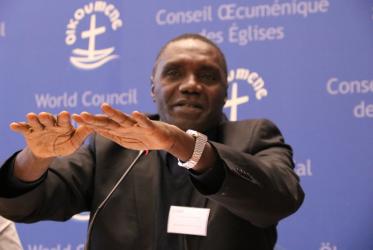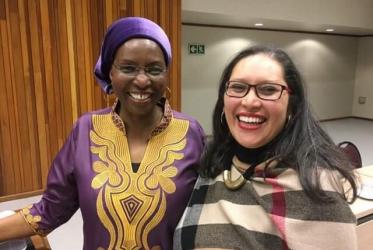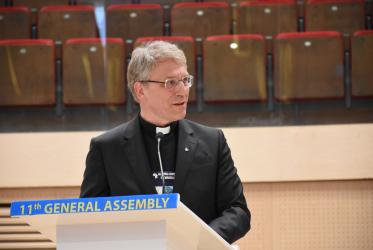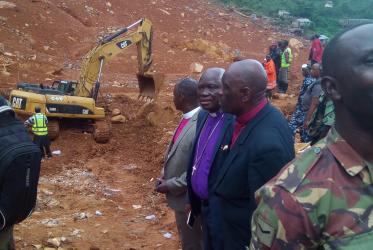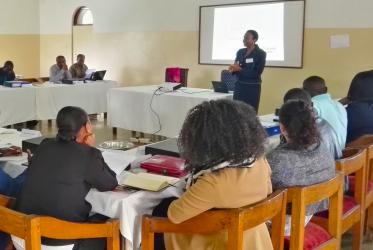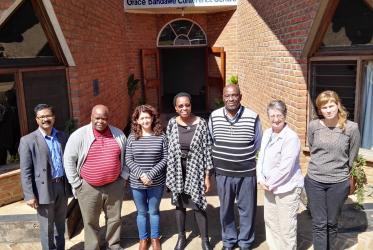Displaying 1 - 20 of 39
WCC condemns massacre of farmers in Philippines
12 April 2019
Agreement works toward food security in South Sudan
23 February 2019
All pilgrim routes lead to COP24
11 December 2018
Pan African Women of Faith issue fervent Call to Action
20 November 2018
#WCC70: A prayer about health and healing
20 July 2018
GETI students plant trees, in service for greener future
07 March 2018
In Zambia, foreign investors complicate “economy of life”
06 September 2017
GEM School: integrating theology and economics
05 September 2017
African youth takes stand at first ever WCC Eco-School
03 August 2017




